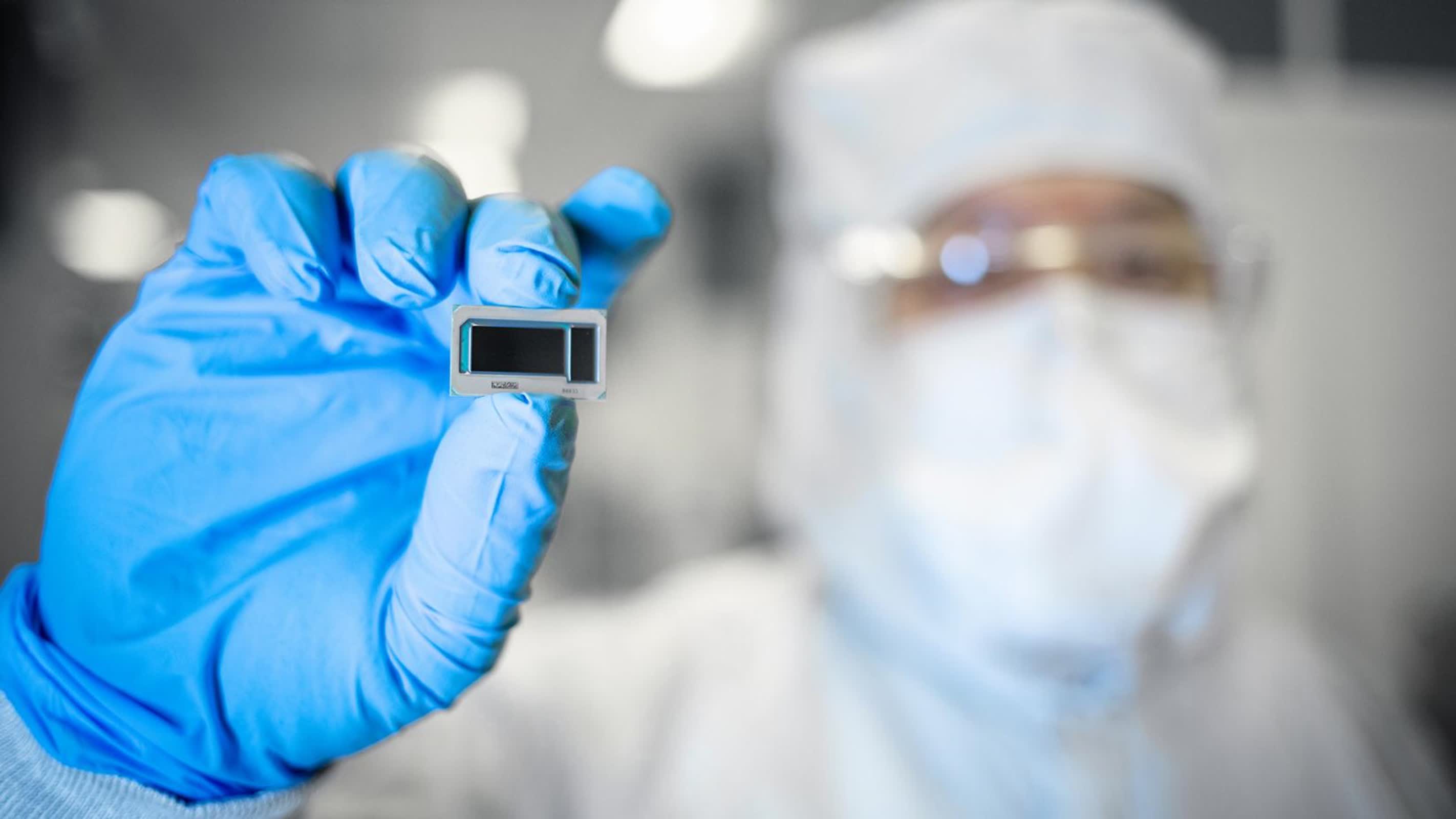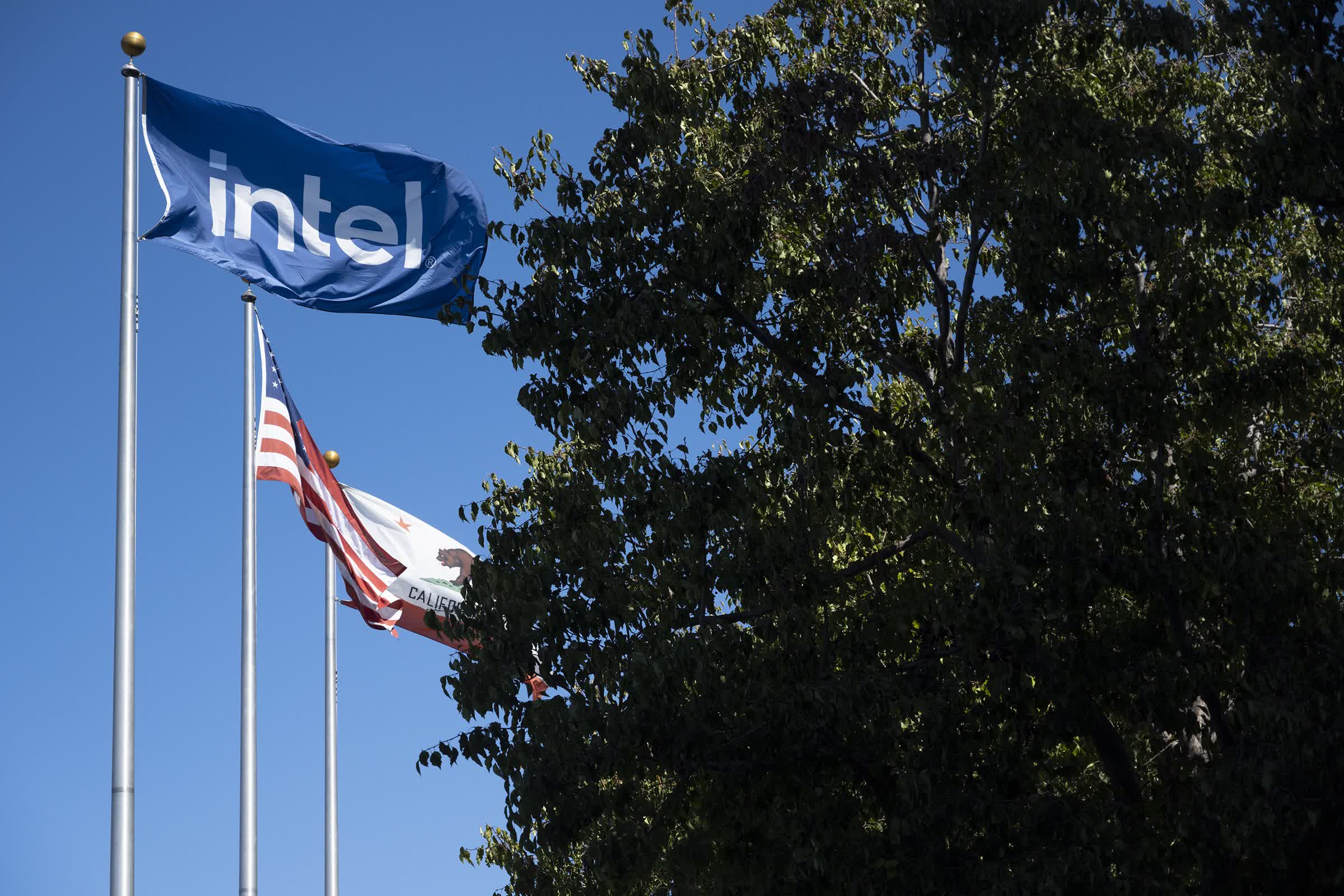In context: The US is eager to establish domestic foundry capabilities to produce AI chips, and Intel is working hard to position itself to be the provider. It was only natural, then, for CEO Pat Gelsinger to ask US Commerce Department Secretary Gina Raimondo to put in a good word on Intel's behalf with America's chip designers including the likes of Apple, Nvidia, Amazon, and Google.

Ever since Intel announced plans to open up its manufacturing capabilities beyond in-house CPUs, the company has targeted TSMC as its top competitor in the global foundry market. Nonetheless, it's been a source of frustration that fellow US companies rely so heavily on TSMC for most of their semiconductor manufacturing needs.
Intel CEO Pat Gelsinger has turned to US Commerce Department Secretary Gina Raimondo for help, and according to sources that spoke to CNBC, she is trying to deliver.
"When we talk about semis fabrication, we tend to treat the different foundries nodes as fungible, as if a customer could easily trade Samsung for Intel for TSMC. This is not accurate. In reality, each fab has a different way of doing manufacturing. Intel's process was designed to make CPUs, and those processes are not the same as what is needed for other types of chips." This quote comes from a late 2022 op-ed by fellow semiconductor analyst Jonathan Goldberg, when discussing Intel's big bet on Foundry Services and who could become Intel's first foundry customer.
Raimondo has since met with several public market investors to persuade companies like Nvidia and Apple that it's in their best interest to support chip manufacturing in the US given the increasing geopolitical risks around Taiwan. She also emphasized the economic benefits of having a domestic foundry capable of producing AI chips, according to these sources.
Convincing these companies to switch contract manufacturers will be a significant challenge. Nvidia, for example, relies heavily on TSMC's advanced manufacturing capabilities for its latest high-performance GPU AI accelerators. TSMC is also a crucial manufacturing partner for most other big tech companies, including AMD, Apple, Broadcom, and in some more rare instances even Intel itself.

Raimondo's argument, though, holds water. Taiwan plays a vital role in the global semiconductor supply chain, and there is the potential for major disruption should China choose to invade the island nation.
Intel would be the natural alternative. The company is building new plants in four US states to strengthen its position as a foundry service provider for other chip designers. In March, the Biden administration announced a preliminary agreement to provide Intel with up to $8.5 billion in direct funding through the CHIPS and Science Act. Additionally, Intel may be eligible for up to $11 billion in federal loans under the same legislation.
The actual disbursement of these funds has not yet occurred, but government officials told CNBC that they expect to distribute the funds before the end of 2024.
Despite these efforts, Intel's foundry initiative has faced setbacks and delays. Broadcom recently determined that Intel's new 18A manufacturing process could not meet the quality standards necessary for large-scale production of its chips. This rejection from a major potential customer is a significant blow to Intel's foundry ambitions.
In its most recent quarterly earnings report, Intel's foundry division's losses deepened to $2.8 billion, up from $1.9 billion in Q2 2023 and $2.5 billion in Q1 2024. Even more concerning, Intel expects the foundry business's operating losses to peak in 2024, with break-even operating margins anticipated around 2027.
However, Intel did achieve a notable win in February when it announced that Microsoft plans to use Intel's foundry operations to manufacture a custom computing chip with its 18A technology.
At that same event, Intel revealed it expects to surpass TSMC in advanced chip production before its original 2025 target. The company also plans to extend this lead in 2026 with the introduction of its Intel 14A process. Additionally, Intel increased its expected foundry orders from $10 billion to $15 billion.